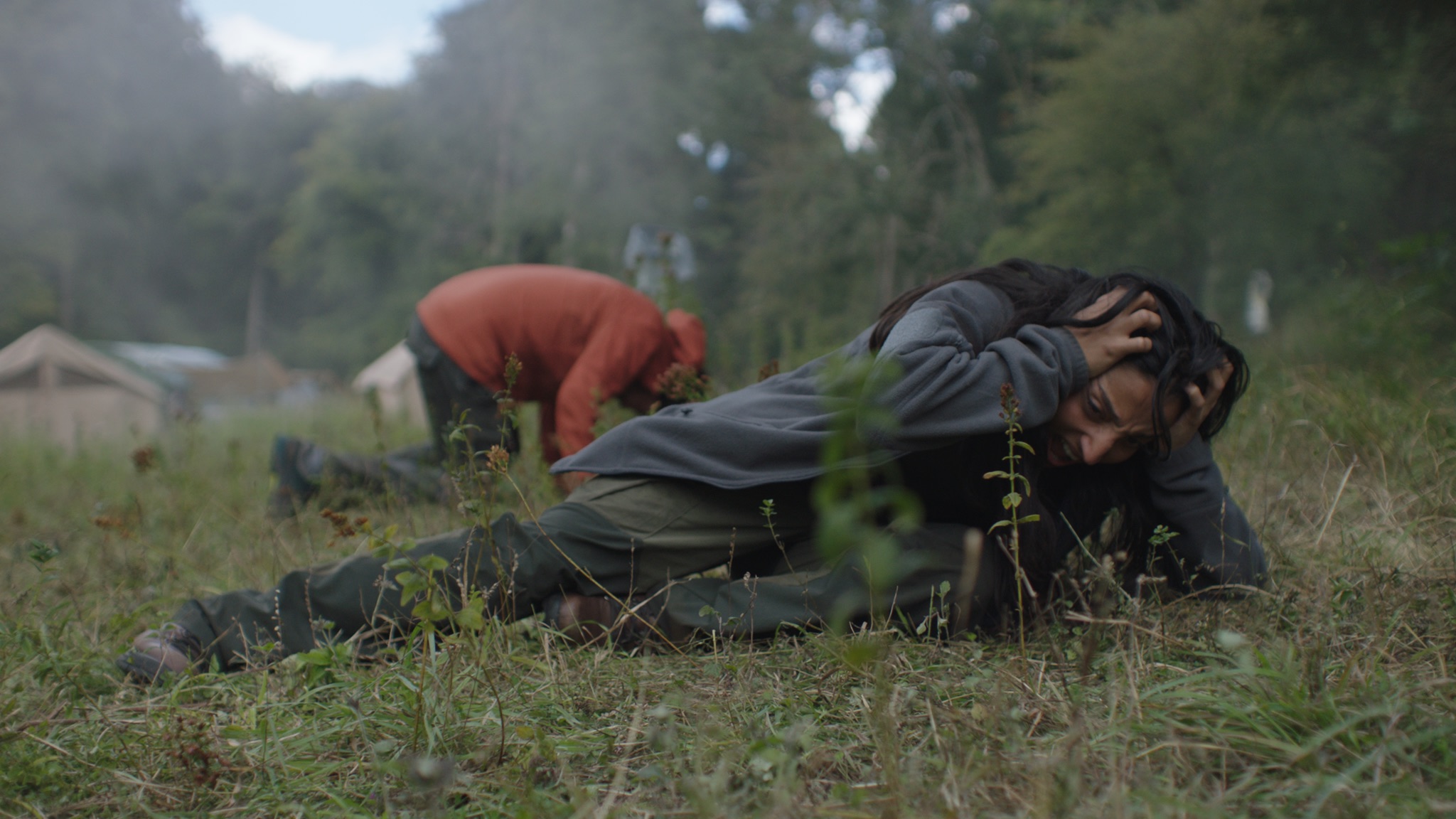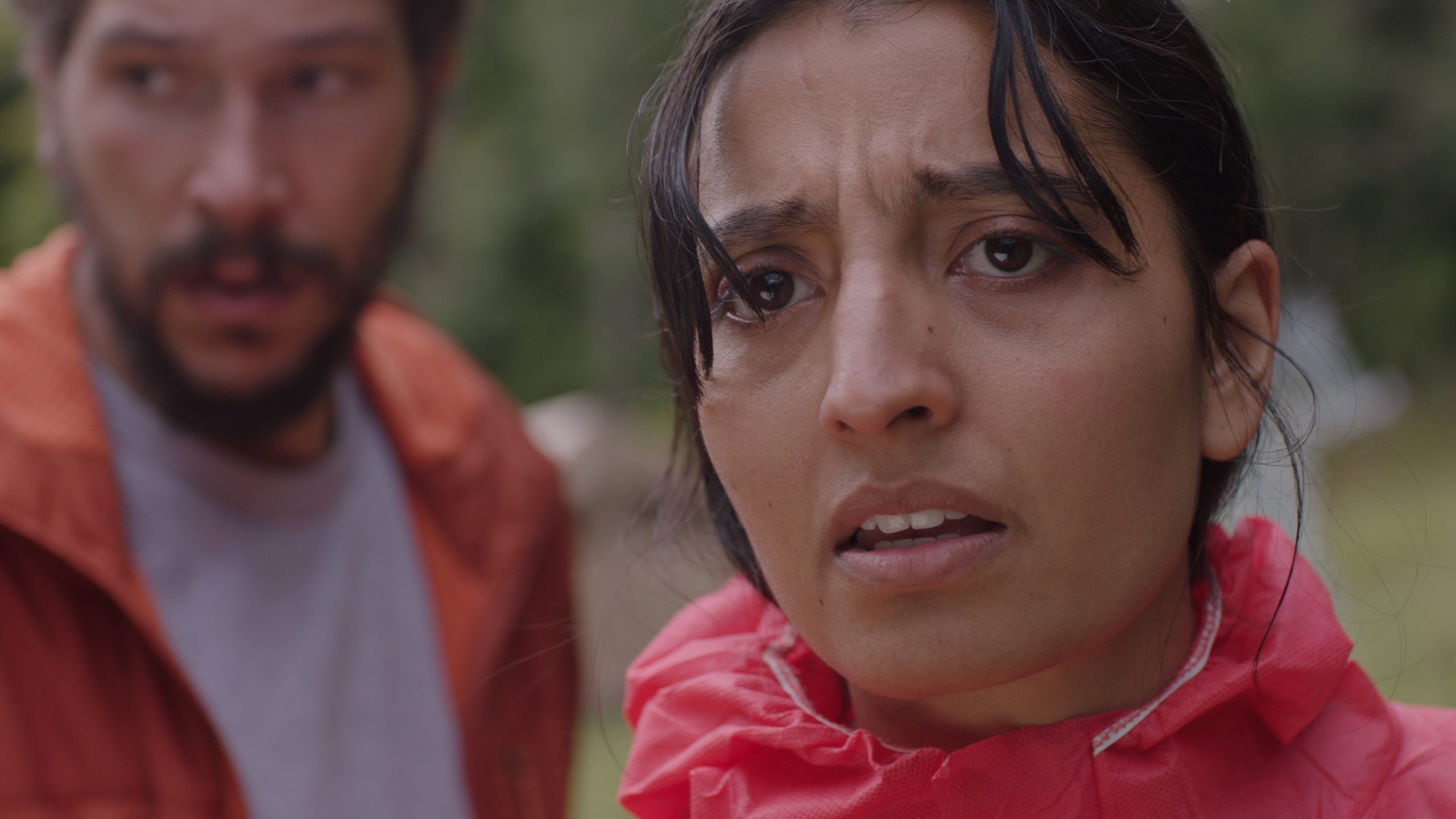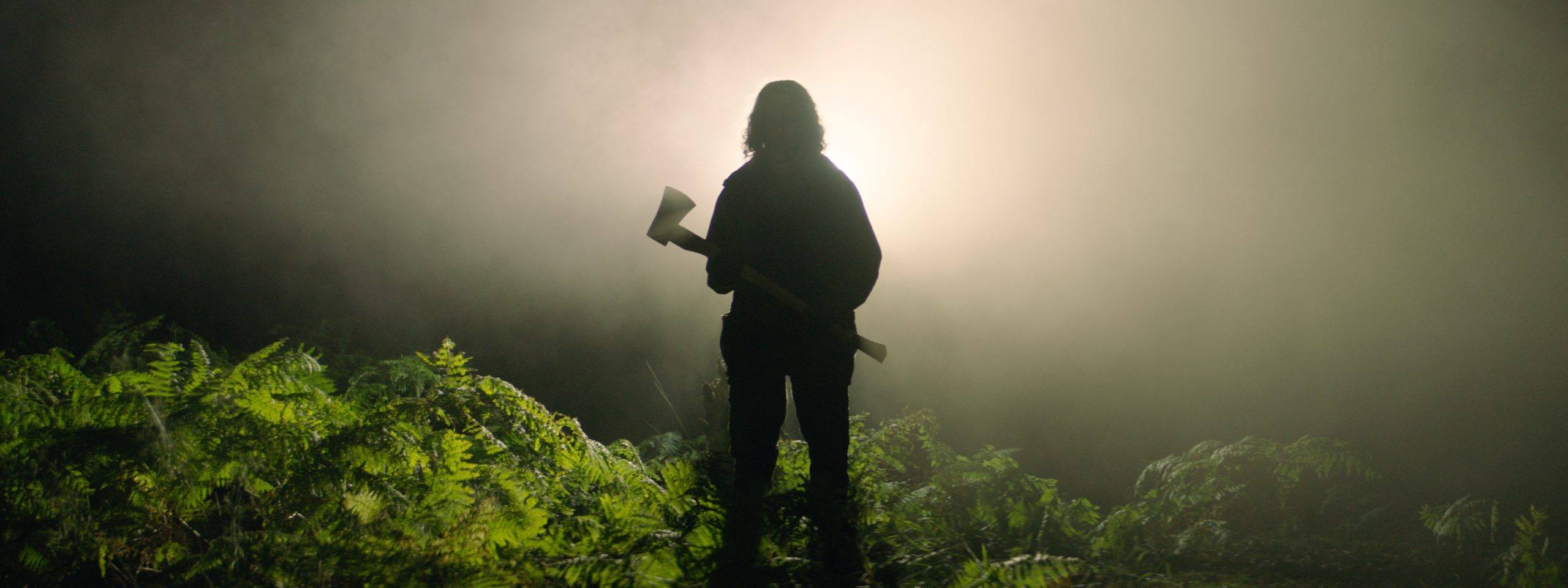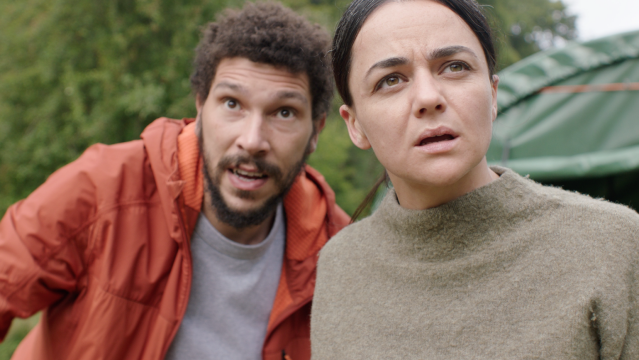Ben Wheatley’s In the Earth is a folk horror tale and trippy sci-fi story. It follows a park ranger and a scientist who head deep into the woods to find a missing colleague and discover some deeply weird, deeply disturbing forces lurking among (and within) the trees. With the movie arriving later this week, Gizmodo spoke to the writer-director (Free Fire, High-Rise, Sightseers, Kill List) about his eco-horrific latest, as well as his thoughts on “pandemic films” and the future of horror in a post-covid landscape.
Cheryl Eddy, Gizmodo: Throughout your career you’ve often explored the folk horror genre, with In the Earth being just the latest after films like Kill List and A Field in England. What is it about folk horror that fascinates you and continues to inspire you in your storytelling?
Ben Wheatley: I’ve been thinking about this a lot. I mean, initially, the first movies that I did, I wouldn’t have categorised it — I don’t think that the subgenre of folk horror was even a thing really. I know that [director Piers] Haggard had called [1971’s] The Blood on Satan’s Claw a folk horror film, I think, but the actual movement or the gathering together of those movies or modern movies into a thing hadn’t happened. When I made Kill List and A Field in England, they were more to do with kind of trying to understand a general Britishness or a European-ness. That you exist on a land that’s ancient, but there’s a schism in that you’re a modern person living on an ancient land, and all around you historical things have happened — and particularly dark and terrible things, and often in your name. And oftentimes, you’re not particularly educated about what those things were, that got you to this position. But also the idea that you’re the end of the spear of your own family’s DNA, in a way — that you’re the most advanced version of that until you have children, but there’s been people that were like you experiencing history all the way down the line.

That’s kind of where Kill List was from, and A Field in England — which is more Amy Jump’s movie, because obviously she wrote it — that film was more about trying to understand how we arrived historically where we are now in Britain, through that particular moment in history where kind of science and technology and witchcraft were split in half. You suddenly get the alchemists becoming chemists and the fight between the kind of magical Catholic kind of Christianity and the more dour kind of Protestant Christianity and how those two things were starting to be separated out. But with In the Earth, it’s more of like seeing what’s happened in the 10 years since Kill List and trying to understand what I think about that idea of folk horror. That’s kind of discussed in the movie — the Zach character [played by Reece Shearsmith] is someone who’s representing that and following it, but it’s dubious whether any of it is actually real, or from any kind of real historical background at all.
That’s the thing about a lot of the stuff in the UK — if you look at The Wicker Man, it’s a hodgepodge of made-up stuff, it’s not historical. A lot of this stuff is Victorian, but it has a kind of historical patina to it like it’s real, and it’s not real. So you’ve got that, and then you’ve got the scientific side again, like in A Field in England, the two sides of these things. And then it’s like those two positions are then trying to talk to something, which is a modern but what would have been seen as some kind of folkloric thing in the past — but then is also a kind of scientific creature. So it’s the genres smashing together in a way, the science fiction and folk horror.
Gizmodo: Certain characters in the film are obsessed with communicating with nature, with one, in particular, insisting that the message will be benign: how we can all live together harmoniously. But In the Earth offers every suggestion that nature’s message is, in fact, already coming through loud and clear and is pretty hostile. If nature could speak, what do you think it would say?
Wheatley: I don’t think it would say anything that we could understand, for starters. I heard a statistic which was like in 100,000 years, the Earth would be put back to how was before humans. Oil reserves would return, and everything would be gone but glass, you know, all the glass we’ve made wouldn’t ever decay, but everything else would be gone. There’s something comforting about that — the Gaia or the Earth would recover, no matter how badly we screwed it. It just depends on how sentimental you are about humans at that point, whether you think what’s happening is good or bad. I think nature has a longer view often, and I don’t think it would say anything to us. I think it just thinks we’re stupid.

Gizmodo: There’s a pandemic subplot sort of floating around the edges of In the Earth that feels very timely. Why did you decide to incorporate that and was that directly informed by your own experiences regarding 2020 and the coronavirus?
Wheatley: It wasn’t a subplot; it’s just set in the now. So it’s contemporary, that’s all. It was a weird thing in the descriptions [of the film] that it was somehow about the pandemic and it’s not, you know, not really. It partially had come from this thing of wanting to make something that was — you know, when the lockdown happened in the UK I started watching movies as they were slowly being released on VOD and realising they all looked like period pieces now. They didn’t really make any sense and they were all full of crowds and stuff. It just felt really dislocated. I thought that was a line, basically. If all production up until that lockdown was over, and any scripts written before that were dead, unless you can understand what we’ve all been through and incorporate it into your story going forward, then you’re not acknowledging life and what you’re doing is making a film about films to a greater degree. I wanted to make it so that it would fit in the post-pandemic world, so that it would be part of that reality rather than something that pretended it never happened.
Which is weird, you know, I felt that at Sundance like there was kind of a critical idea that anything about the pandemic suddenly became “pandemic films,” but it’s just like, it’s the experience we’ve all had, so why would you not talk about it? So that was kind of where that was from. Also, it’s in the kind of context, of like — I always think back to the Romero stuff, in talking about Dawn of the Dead. It’s a zombie film, but it’s about what’s happening now or was then. Most horror films should be that, social commentary on everything around it but wrapped inside a genre coating so it’s an easier pill to swallow, rather than a kind of hectoring movie about consumerism or something like that. You want zombies and people on motorcycles with axes and stuff to make that stuff be a bit more of a smoother transition.
Gizmodo: Along with that idea of the pandemic comes the idea of feeling isolated and becoming almost paranoid as a result of that, something that fit really well with the horror of In the Earth as well.
Wheatley: Yeah, but it’s now, isn’t it? We were feeling those things as we were doing it. Some of the dialogue in it — “people will forget about this,” “oh no they’ll never forget.” These are the two positions, aren’t they? Some people will never be able to forget about this because of what happened to them, either through loss or through their own illness. Loads of other people will just go “Yeahhhh, the pandemic’s over!” and never look back about it. I think there’ll be a whole generation of teens to 20s, people who were in education during this, which this will be in cinema and novels and music for the next 20 years. I mean, my son’s 17, he was indoors [while he was] 16, a big chunk of it. I can’t see how that couldn’t have a big impact on what’s going to happen going forward.

Gizmodo: How do you think the experience of living through the pandemic will affect horror films in the future?
Wheatley: The metaphor of horror is slightly broken with the pandemic happening. The world of the zombie film, for instance, is kind of screwed by it. And also it’s kind of answered a lot of things that they were kind of trying to work out what would happen. Like an Independence Day kind of structure — what will happen at the end of the world? Well…not much, it seems. Movies would suggest there’d be riots and it would be much more aggressive, but it seems like we went quite quietly into the night. So there’s that.
Also, yeah, the movies are usually — as I said before — structured as a metaphor for what’s happening, but when the actual thing is happening you don’t need the metaphor so much. So that kind of breaks the zombie genre slightly. But I’m sure it’ll come bouncing back in the next few years.
In the Earth arrives in U.S. theatres on April 16. An Australian release date is yet to be confirmed.
